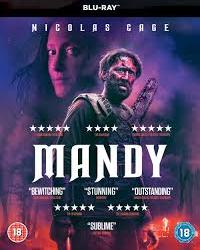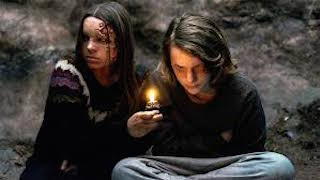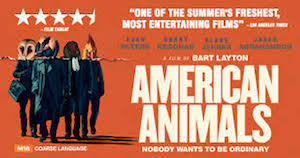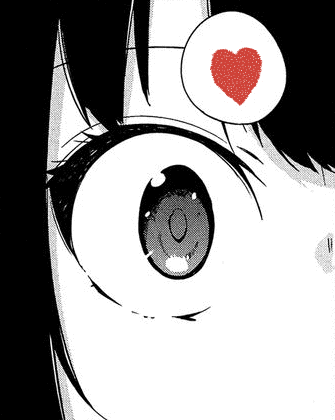#(not to go on and on re: the bird of prey imagery but like.)
Note
⭐ for The Lark and the Crow!
Ah thank you!! 💕💕 Permission to ramble!! It was hard to choose but I thought I’d go with Ch. 15 Crime and Punishment.
Some pwotr spoilers
I’ll skip over Seelah’s quest which imho is a strength of neither the game nor my fic, although I will say I thought it was funny to have Woljif pick the pockets of the wedding guests and then have a moment of panic believing he’s got jewelry containing demons that might possess him—when that’s what he’s had around his neck since Act I.
Oh. I will also say imagining Siavash dressing for a costume wedding was also a joy. (He went as sexy Lantern King. Aivu was a Jabberwock.)
One final note. At first I had Seelah marrying Elan, and then Jannah, and now I ship her with Arue post-Crusade, so I’m not even sure I want to stick to my idea of making this her wedding. Someday I may update the fic.
The point of all this (re the chapter title) is that Woljif pickpocketed Seelah’s wedding guests and she is ticked and he… feels bad about it?
And then his little sleight of hand comes back to haunt him: he stole a cheap-looking brooch from Siavash early in the Crusade, which turned out to be his Andoren Diplomatic Corps badge of office, and now he… feels bad about it?
A word about that brooch. The Andoren wood anemone, a flower that blooms in early spring before the trees can overshadow it, symbolizing how the common folk prosper when liberated from hierarchy, is an invention I’m kind of proud of. Andoran uses a lot of bird-of-prey imagery in the sourcebooks but it felt like the Diplomatic Corps needed something less aggressive.
The rest of the chapter is an original mini-story sending Woljif back to Kenabres to see if he can’t track down that brooch. He meets some old “friends” who are suspiciously glad to see him again and has a little run-in with Sister Kerismei – and receives a stark reminder of how far he’s come.
He’s making a break with his past, and something new is starting to take shape in his life. From street rat to mythic companion. From being alone in the world to having people he would actually feel bad stealing from. From Calistria to Shelyn.
On that note - I was touched how the Romance Mod gave him a special connection to Shelyn instead of Calsitria, so I developed that in this chapter, and there’s a reference to something along those lines in the sequel to Wandering Stars I’m working on now. This chapter is his quest for true love ❤️
That also gave me a chance to write some Sosiel! (Another wip on the back burner.)
8 notes
·
View notes
Text





The Wrap, Part II: Return of the Curse of the Creature’s Ghost!
Film Reviews from the 51st Annual Sitges Fantasy/Horror Film Festival
by
Lucas A Cavazos
It would be of utmost denial to oneself to not take part in the occasional puff of marijuana and/or odd glass or two of red wine whilst shuffling about Sitges during this type of festival. I tell you, in this gayest of cities (and yes, I mean that in both senses of the word), nothing says loving like soaking up sun and guts while having the right side of your brain open. To quote Henry Miller…”The aim of life is to live, and to live means to be aware, joyously, drunkenly, serenely, divinely aware.”
And it is in that vein, I present to you the latest film starring Nicolas Cage, Mandy ###-1/2…Could it be that Nicolas Cage might actually have something interesting to offer now that he’s well past 50 and ready to go beyond simple nut job roles and wannabe-buff, action hits and flops? Last year, this festival premiered the currently in-run and VOD film called Mom and Dad with Selma Blair, and if that was a thing of fun and delight, which is was, this film is much more darkly mirrored and rife with psychedelic imagery, and it must be discussed. To note, it does contain ye olde, ubiquitous screaming-whilst-having-a-psychotic-fit Cage scene, doubt ye not! Set in turn of the decade 80s, Red (Cage) and Mandy (Andrea Riseborough) have removed themselves from the majority of society and live a life of slight isolation, that is until one day, Mandy is abducted by some occult-like sect with grave intentions. Linus Roach (Priest) plays Jeremiah Sands, a man who can call forth demons and demonic creatures, and when psychedelia meets rancour, flames go up and and as they do, someone in them, as well. This is where the film turns into a contemplative narrative tale on revenge and turmoil, highlighted by a tinge of hallucinogens and wasp venom, and I cannot begin to tell you how eerily creepy it is to see Linus Roach after so many years in a role like this that sends chills down your spine in ways that create sheer panic and disgust. Watching Cage take revenge is a joy and wonder, and it should be noted that the film won two of the Sitges 51st Official Selection Awards for Best Director, which went to Panos Cosmatos and Best Actress going to Andrea Riseborough, who also comes up a bit later down below. A piece of rogue psychedelic modern art on celluloid if ever there was one, tinges of Wes Craven, Heavy Metal cartoon imagery and sleep paralysis demons make this Nic Cage vehicle one of the best things he has done in simply years.
Making my way over to The Retiro in the heart of bustling Sitges to screen the noir-like film The Dark ###, I realised that I was late and upon arrival, I was quickly ushered upstairs and had to make do with a single chair propped up next to an upstairs balustrade. The Dark is an eerie piece that preys on the power of the unknown to scare the viewer into wanting to know more about its strange characters…and then the film reveals those secrets in flashback. Despite its title, there is very little in relation to darkness other than the tone of the film and its narrative of teen spirit gone horribly awry. In a former entry, I spoke of how a screened premiere entitled Zoo had encroached upon fresh zombie territory, and until recently as just over a decade ago, zombie cinema was a mostly contained affair, and reserved to a select grouping of films annually. That all changed with the mid-noughties and this latest entry into its subject matter baits us with unexplained tidbits, starting when a one Josef Hofer (Karl Markovics), described as armed and dangerous, makes his way to a rather haunting locale, where death finds him in the form of Mina, perma-resident of this cursed abode in Devil’s Den, a forestal area with a history of hauntings and Mina is that person/monster haunting those very woods. But then she discovers Alex, a blind and also-scarred teen who had been Hofer’s captive, and together the two make off for a disturbing adventure, which borders on heartfelt while also sadistic. If anything, this piece certainly toys with emotions and good cinema ought to do just that.
The Sitges Fantasy/Horror Film Fest is divided into many distinct sections, such as the main Official Selections, Noves Visions,which promotes newer filmmakers and diverse subject matter, Melies Feature and Short Film sections, Asian Focus, Animated Fare, The Orbita promoting mixed big budget and indie fare, Fanastic Discovery Features promoting obscure (and often deeper) cinema, the B and Z-grade fare of the Midnight X-Treme selections, as well as, the Critics Jury Selection. All of that to say that there is nary a specific genre within the fantasy film/horror movie genres that is NOT touched on by this film festival. Winner of the Orbita Award for Best Picture went to the US studio outfit entitled American Animals ###-1/2 and what an astounding effort it provides its audience into a peek at the rather modern mindset of the ageing millennial. Telling a 2004 real-life story by British director Bart Layton, he of the haunting 2012 film The Imposter, this 2018 effort documents how four white youths from good, hardworking families failed to fully realise a masterminded effort to steal one of, if not, the world’s most valuable book. The multi-volume Audubon Society’s Birds of America, not to mention Darwin’s first edition copy of On the Origin of Species were just two of the books to be included in a heist that Transylvania University students Spencer Reinhard and Warren Lipka (played to perfection by Barry Keoghan and Evan Peters) foolishly decided to rob from the special collections library department. To say that the subject matter is mid-level at best might be a tad harsh but only just so; that said, the way Layton maps out the mental state of these middle-to-upper middle class boys should give all of us a hint as to where these boys, and millions like them, are coming from. The plan of a heist is bred with the idea that their spoiled lives have hindered their true creative identities, and so to tell the story, the director secured interviews with the actual perpetrators and spliced that with top grade talent re-enacting the actual events. The film cannot be heralded as a thing of wonder, as it truly details the dumbest snafu of a heist ever on American soil. But what it succeeds in showing is that insecurity, lack of identity, and seeds of doubt are rife amongst today’s young adults, and if we are not fomenting stronger individuals as siblings, educators, parents, et al…we will continue to create these spoiled races of highly non-autonomous individuals. Give them some tough love, for goodness sake. Worthy of a view for any parent or educator.
AND NOW FOR SOMETHING COMPLETELY DIFFERENT…Lars Von Trier, he of the Dogme 95 cinema movement and so many odd, jarring and sometimes good celluloid pieces…see Celebration and this film as examples please…he of the “understanding Hitler, I’m a Nazi” joke he pulled a few years back at Cannes, which then had him banned for half a decade, premiered his latest work last week at Sitges. It a doozy of a film that garnered some decent attention and a European and Spanish distributor, for sure. It’s been a hot minute since we’ve seen Matt Dillon on the big screen, and the brief time with Uma Thurman at the film’s beginning is a dark scene of beauty…and then not. Here’s the thing, as always we are dealing with the tortured mindset of a Scandinavian director who seethes out his demons onto celluloid, but that alone does not make it exceptional art, although I truly believe he thinks it is. In turn, I truly believe that von Trier is quite likely a mitigated sociopath. That said, while there is a bit of reverential awe to his masterful ways of movie manipulation, it is his use of dark comedy that sets this film apart from other recent fare he has brought us. Matt Dillon plays the titular character and while amusing at first, he soon grows languidly repetitive and chauvinistic, and while there are scenes of comedic brilliance, such as an OCD-related clean up job that leads to an incident with a policeman or the bang-down job he does trying to dispose of bodies in a freezer, it is impossible for this student and teacher of history to not associate the fact that we are watching a man, a DANISH man no less (do your research as to why I emphasise that, chirren) play out his darker inner recesses for our viewing interest, but it surely makes me aware that we are also likely dealing with his pathos. That’s what really makes The House That Jack Built ###-1/2 really scary.
Lastly this entry, Nancy ###-1/2 brings up the actress Andrea Riseborough again, and I would like to note that often at awards season and ceremonies, actors get rewarded for an individual work, which often plays testament to all the other work they’ve done in their field that year. As Riseborough won Best Actress at this year’s Sitges Fantasy/Horror Film Fest, I believe this piece was much more deserved than the aforementioned Mandy for that award. I also find it compelling that she as an actress chose to make two, back-to-back films about tortured women with their names as the movie titles. Nancy is a quasi-failed career woman tending to her mum who suffers from some neural disorder and who is unintentionally suffocating her daughter with complaints and stress…but when mum dies suddenly, what is Nancy to do but discover that she was likely abducted years earlier and soon begins to associate herself with a long lost child case never resolved that might fit her theory about herself, however strained it is. What ensues is a emotional tour de force involving the parents of the long missing child, played to award-level precision by J. Cameron Smith as Ellen and Steve Buscemi as her hubby Leo. When Nancy sets up an appointment to meet with them, they take a shining to her at once and while awaiting DNA results, take her in to stay with them, including with her cat to which Leo is allergic. As scenes go by, even though this might be more in order in an indie film fest rather than here at Sitges, you also understand that the fantastical elements lie in the mind of the titular woman, as well as, in director Christina Chloe’s softly brutal touch. A film meant for those who understand healing and suspension of (dis)belief, Nancy gives Andrea Riseborough a chance at becoming a celebrated actress to emulate.
#abitterlifethroughcinema#sitges film festival#mandymovie#TheDarkFilm#americananimals#the house that jack built#NancyFilm#matt dillon#steve buscemi#nicolas cage
1 note
·
View note
Photo

"Tuck you in, warm within
Keep you free from sin
Till the Sandman he comes
Sleep with one eye open
Gripping your pillow tight
Exit: light
Enter: night
Take my hand
We're off to never Neverland"
--Enter Sandman
https://goo.gl/FXW52w
The Sandman
Faction: Fae
FC: Doug Jones
Name: The Sandman
Any other titles, nicknames, or epithets: Mister Mercurial, Sopor, Chelem (depending on how old you are. Those who remember him from the glory days will probably refer to him by his earlier name Chelem, or even as far back as Hypnos. His human associates call him simply Mr. Mercurial.)
Age: As old as man’s dreams, and older still. For even birds in their nests and wolves in their dens dream bloody, wordless dreams.
Personality:
+energetic
+entertaining
+understanding (he’s had millennia to dissect and devour every form of human desire and regret. Trust him when he says he knows what you’re feeling. He has tasted it before.)
+intensely curious
+playful
+adaptable
+creative
+has an infectious energy and passion, and is oddly supportive (even if he tends to support horrible, energy-draining ideas and crackpot fantasies that are bound to go nowhere, end up in life-consuming obsession, and feed no one but himself)
+whimsical
+persuasive
+/-overly flowery and melodramatic in all aspects of life. He lives on imagery and imagination, and the rules of reality don’t really seem to apply to him. His magic is very distorting, intoxicating, and metaphorical
+/-nosy
+/-not disloyal per-se, and not exactly neutral. He likes to play /every/ side, catching ahold of fragmentary goals and half-born ambitions before flitting onto the next.
+/-stickler for rules, though his rules are almost nonsensical and extremely allegorical (in a way he’s the unholy mix of Jareth from The Labrynith, the Riddler, and Morpheus from the Sandman comics)
+/-perpetually /starving/. His hunger and greed give him his gaunt, inhuman appearance. Despite centuries of twisting others’ imagination into his own human illusions, he hasn’t quite been able to disguise his inhumanity, and the result is both uncanny and somehow entrancing.
+/-while on a whole he seems unfocused and a raw force of nature (barreling in every direction with deadly strength like a rushing current yet as impossible to grasp as water) he is incredibly intense and focused on small points. His plans from a grand scale seem to constantly shift, but this is because he focuses on very small issues before becoming immersed in his next micro-obsession.
-quixotic
-possessive
-greedy
-irresponsible
-quick to make judgments and resistant to changing his mind (even given counter-evidence)
-irrational
-while he tries to appear pleasant, gracious, and giving he can be quite vicious and spiteful when he feels you are hampering his plans. He also spares little thought for the live he ruins. In his mind he gives them a greater gift than the energy he takes, and his illusory worlds provide more comfort than reality. He rarely sticks around to see the evacuated, hollow, delusional human wrecks he leaves in his wake.
Powers, weapons, and skills:
Like many other Fae, Mr. Mercurial draws his power from the energy of living beings. While others focus on emotion, his energy source is even more intangible. He feeds on dreams themselves, crafting palaces of fantasies from wisps of imagination. While his magical source may be the most obscure and metaphorical, it has some of the most concrete uses. His very life-blood is a sea of hypnotic dream and he’ll shed his blood for any would-be dreamers and hopeful innovators...for a price. Above all, Mr. Mercurial craves novelty, always hunting for the next groundbreaking idea, or intensity, searching for souls deeply wrapped in their own daydreams. The advent of mass media and entertainment was more than he could ever hope for in this quest. Now he has a rapt audience already primed for dreaming and already hooked on diversion. And in a city full of vices, who will pay any attention to one more shadowy figure pushing iridescent, quicksilver pills in back alleys? He says they’re simply melatonin. But the dreams they conjure are like nothing you’ve ever experienced. In the end, they become more real than reality itself, and life will never be quite as satisfying as that world you build within your mind.
Worst of all, as The Sandman accumulates loyal followers, lovingly called his Dreameaters, his powers grow. His quicksilver pills are picking up some very strange side-effects, and the human world is starting to take notice.
In essence, he creates daydreams so real they can become physical to their target. They often weave into elaborate distortions of reality, each personalized to the dreams of the viewer. The more the individual's mind fills in the gaps in the dream and the more they become submerged in the fantasy, the more power Mr. Mercurial can siphon from them. This works on Fae, shifters, and Witches Proper to some extent, but humans are much more susceptible. His favorite prey of all happens to be hedge witches because they are still human enough for vivid dreams but have some amount of Power.
Weaknesses:
In many ways, his illusions are stronger than his physical self. He is crumbling and tearing apart at the seams, like worn paper. This frailty causes him to rely even more heavily on his powers, thereby accelerating the cycle of decay.
His power must have a fertile mind to catch hold. Therefore, his illusions are realest to creative, artistic, passionate, or curious individuals. Those who are overly rational, small-minded, or inflexible simply won't be able to embellish on his fantasies.
While old film, books, and other older physical media can still harbor his powers, he hits the same pitfalls as many other fae. Modern technology, including phones, cameras, and computers just won't take up his magic. He is also weakened in the newer part of the city, and shuns the tall glass and steel skyscrapers in favor of crumbling brick and shadowy alleys.
It takes a little knowledge about a person or direct contact with his blood to create a very vivid dream-world. Usually after taking one of his quicksilver pills, he sticks around to talk and fish out more information on your darkest fears and deepest hopes. Only then can he truly weave a dream strong enough to entrap a human to their death.
The more Dreameaters he amasses, the stronger his power grows. But his body weakens. He counteracts this by devouring the physical body of his most imaginative Dreameaters. He doesn't relish this aspect of his powers, but views it as a noble sacrifice by his loving children so the dreams may continue. What he /doesn't/ realize is that once he has devoured them, they are a part of him and have some small access to his powers. His blood is their blood, and they have started appearing in visions to some of the Dreameaters and those who try his quicksilver pills (but more on that to come in NPCs).
He may think he has a perfect understanding of human nature, but his views on human emotion and motive are actually very black and white. He knows their deepest failings and their greatest hopes, but he doesn't really understand the grey area most people dwell in, both evil and noble. This can certainly be used against him.
Finally, and most importantly, he is almost as caught-up in his own webs as his Dreameaters. He has lived in fantasy so long he is rather delusional. Though he claims to control his fabricated reality, it has taken on a life of its own. It may just be devouring him just as it devours his human prey.
Likes:
Modern technology
movies and media. He is /obsessed/ with movies and tv. They are the closest thing to mass-produced versions of his power, and provide very convenient ways for him to siphon energy.
especially enamored with classic hollywood
melodrama
watching from afar
horrible jokes
creativity
art
anyone with a driving passion
making dreams come true (or at least, so he says)
messing with the other Fae and Witches Proper
humans. He may be a parasitic force of nature, but he truly loves how every small, inconsequential human has the capability to dream and create their own worlds. Probably of all the Fae, he has the greatest love and awe for
Dislikes:
realists
boring individuals
small-minded people
fae who look down on him for his close association with humans
not getting his way
boredom
those who bring up his more brutal violent side. He sees himself as a savior and martyr, literally giving his life-blood for others' enjoyment. So what if he takes their soul in the end? They had a more fulfilling life in their daydreams than they ever could in reality.
modern technologies thwart his powers
not getting to make a grand entrance
Short bio:
Chelem is older than the memory of man. He was there when the first human hand scratched the shadowy outline of a mammoth into a wall. He was there for the first raising of a wall, for the first dreams of warm summer in frigid winter nights, for the first spark of creativity that turned shapeless rock into a flint dagger. As man grew, so did his power. While other fae shunned humanity, he saw in them the spark that has kept him fed for millennia. For humans, above all others, can dream.
Through the centuries he has whispered into the ears of kings and alchemists, pauper revolutionaries and grand artists. He has led many to the path of destruction, just as he has led others to immortality through almost impossible deeds. And in return, they have woven for him a world of dreams. He cloaks his true guise in their hopes and fears. Though he lacks the imagination himself, his human pets have crafted for him a shell to live in, almost human but never quite right. He is a mocking reflection of the creatures he so deeply loves, and he is relentlessly ravenous for new ideas and new fantasies to build on his already lush imaginary world. For only there does he truly feel safe. In reality, his flesh is fragile and crumbling. He is wasting away in his own web, only barely clinging to existence with the bloody deaths of his followers.
But the resurgence of the Stone is bolstering his powers, and through his quicksilver pills and his growing army, he finally sees a way to stabilize his form or, more terrifying still, to shed it completely and engulf Morrow in dream.
Life in Morrow:
He runs a movie theater in the bad part of town. Little do his customers know that he sits above the crowd, not watching the flickering screen but focused on the rapt faces of the audience. He lives for their emotions, their wayward dreams and petty fantasies. Mr. Mercurial feeds on the imaginations of his customers, and has moved far beyond passively gathering their cast-off fancies. He has developed what he calls "quicksilver pills," an iridescent, silvery capsule sold to human, fae, shifter, and witch alike. While he claims they are nothing more than melatonin, they produce dreams so vivid and captivating that users can waste away, stuck in their dream world. Mr. Mercurial is slowly building an army of these Dreameaters, who wander the streets with glazed eyes and a metallic sheen across their lips before dying, desiccated and strangely opalescent. The human police are hot on the trail of what they believe is a new drug craze sweeping the streets of Morrow. But the magical inhabitants know better. Mr. Mercurial is amassing forces, building his own generator for energy as the magic in the world slowly drains away. And the more his power grows, the stronger his quicksilver pills become.
They have gained strange new side effects which have the magical population of Morrow even more worried than the police. For Mr. Mercurial's Quicksilver pills can grant magic to humans.
Now, this isn't true magic, merely an amplification of very small talents into one focused power. But while this magnifies magical talent, it works much like a magnifying glass channeling sunlight to fry bugs on the sidewalk. Dreameaters are starting to overpower, exploding (sometimes literally) with magical outbursts across the city.
Why do they want the Stone?
He believes with the Stone he can magnify his powers enough to plunge the whole world into illusion (or as he says, "wake the world"). Though it may seem selfish, he truly believes the world will be better off if everyone succumbs to their fancies and is fully submerged in dreams. And with a growing force of Dreameaters at his disposal, he may just be in a position to find the Stone (and its unlucky Keeper) before the rest of the magical world of Morrow can get their hands and claws and unholy tentacles on it.
Greatest wish?
To build a world of dream strong enough for him to finally relinquish his fragile body.
Greatest fear?
That the creativity of man is dying and that he'll slowly fade.
What 5 items would you put in a pentagram to summon them?
Movie-theater popcorn, a reel of film, a dash of mercury, a bowtie, and the scent of lavender.
1 note
·
View note
Text
#SyaoRereads: The Sparrow by Goldberry
It’s #NejiTenMonth this July, so in the spirit of celebration for my favorite Naruto OTP (next to the unfathomable ShinoHina, haha!), I’m re-reading and reviewing NejiTen stories that really, really left an impression on me.
Today, I’m starting with who I personally feel is the best NejiTen author in the fandom. Goldberry crafts such excellent, in-character stories. (I reckon she understands Neji and Tenten far better than Kishimoto himself does!)
Among her library of great reads, I consider The Sparrow as my favorite. I don’t usually like angst, but I fell in love at first read with this fanfic.

For those who haven’t read it yet, spoilers abound. Also, please go and read the story right now. It’s goddamn beautiful.
Birds fly and die and there is nothing anyone can do about it. Except for Tenten, she tries.
This 10-minute read packs a lot of powerful symbolism and emotion, beginning from 7-year-old Tenten’s incredible compassion and selflessness shown in her treatment of the titular sparrow. The simple, age-appropriate explanation of young Tenten’s concern for the animal and its ties to Hyuuga Neji built the foundation of her protectiveness and affection for him later on in the story.
It was Neji who caught her, a flash of confusion crossing his face before his features resumed their normal flat expression. She knew he couldn't understand how she had failed to save herself, how she could have miscalculated so badly as to fall prey to such a simple mistake...
I loved this catch scene. It was described so vividly that I could visualize the whole scene as an anime filler sequence.
One thing I always struggle with in writing NejiTen stories is how to show restraint in handling Neji, particularly his interactions with Tenten. Canonically, he doesn’t speak much or demonstrates emotions. He’s no Rock Lee who readily jumped into the arena during the Chuunin Exams arc out of worry for embattled Tenten. This makes it hard to move the plot along.
But in this story, Goldberry capitalizes on this. The story is mostly told from Tenten’s POV, and her seeing a change in expression in usually poker-faced Neji makes the scene more impactful. Yet the same POV shields us from what Neji was thinking at that time, tapping on good ole shoujo tropes of denial and downplaying of romantic tension.
"They're going to find out eventually, Tenten. It will only make it harder...in the end...if you keep protecting them."
She smiled a little, though the look was grim. "They have enough burdens to bear. This one is mine alone."
Maito Gai is frequently reduced in fanfics as a lovable buffoon, so I like stories that tackle his other persona-- the one that stopped Neji from the final move that would have seriously harmed Hinata in the Chuunin match and would have made his student regret it forever.
In here, Gai shares the burden of concealing Tenten’s “last, final sparrow”, adding to the element of dread that we’ve come to expect from Your Lie in April.

The four of them were only halfway there when it hit her, a pain so intense she saw white stars and dropped to the ground, struggling to breathe, literally gasping for air. Neji and Lee were beside her instantly and she could hear their voices but it was beyond her to answer when she wasn't sure she could take another breath. There were some long, horrible minutes while her teammates could only watch their capable, strong kunoichi writhe on the ground, tears on her face from the supreme effort it took to force her failing lungs to work.
This passage played out exactly as the anime would have in my mind. The contrast between the “capable, strong kunoichi” and the writhing woman on the ground was such a painful contrast, and at the same time, it established how well-regarded and respected Tenten is in her team. THIS is the dynamic that differentiates their team from the rest of Konoha 11, where women are regarded as either damsels-in-distress or annoying nags.
Neji and Tenten’s conversation prior to the climax is the part that most moved me in this story, ESPECIALLY this segment:
"I heard you say, 'I'm dying'." His white eyes flashed at her and she could see the hopeless rage in his face. "Why didn't you tell me, Tenten? About the birds, about your sickness... I would have.. I could..."
"You could what, Neji?" she asked, tiredly. "Fight death?"
She had meant it to be rhetorical, but Neji's gaze met hers firmly. "I would try."
HE WOULD FIGHT DEATH FOR HER SAKE OMFGBBQ!!!!12340J!!!

/clears throat Sorry about that. So where was I? Ah yes, the moment that the Neji wall breaks. His “hopeless rage”, the lines he couldn’t finish, and the “I would try” line. It was perfectly Neji through and through. And once again, I have to laud the writer for the impressive restraint. No overt “I love yous” were exchanged here, but, dammit, if a guy is ready to fight death for you, you better believe it’s one true love, hun.
The operation scene puts you amidst the scary, tense-filled moments. There’s little dialogue, yet it feels like you’re hearing and feeling all the character’s sentiments, thanks to the well-written exposition.
He was almost...frantic, and the very idea of that made her start. Neji was never anything but cool, collected, icily arrogant in the face of danger. Even angry, he always remained in control. To hear him now, it was almost as if...as if he were afraid.
Afraid of losing her.
Afraid of losing a teammate, her mind corrected, but even she didn't quite believe that.
Neji’s crumbling facade. Tenten’s blossoming epiphany on how important she might just be to him.

"She owes you a great deal. Without your eyesight, we might never have-"
"She owes me nothing, Hokage-sama," Neji said quietly, still watching her. "It was I who was repaying a debt."
What a great anti-climactic moment this is, Neji finally being given the opportunity to express how he feels for Tenten-- including acknowledging her kindness and sacrifices for him. As a reader, I felt Tenten was vindicated for having to go through all of this. Plus, what a very Neji thing for Neji to say, no?
So in conclusion...
Imagery and symbolism-wise, The Sparrow knocks it out of the park. The “less is more” approach to dialogues also helped make it feel more IC and believable, especially Neji. The transitions were also great and didn’t feel abrupt at all.
All in all, it’s a story worth reading and re-reading if you ever need a NejiTen fix.
Next week: I’m reviewing Neji Gaiden by Levi Ackerman. Multi-chapter. Dammit, bid me good luck with this one.
43 notes
·
View notes